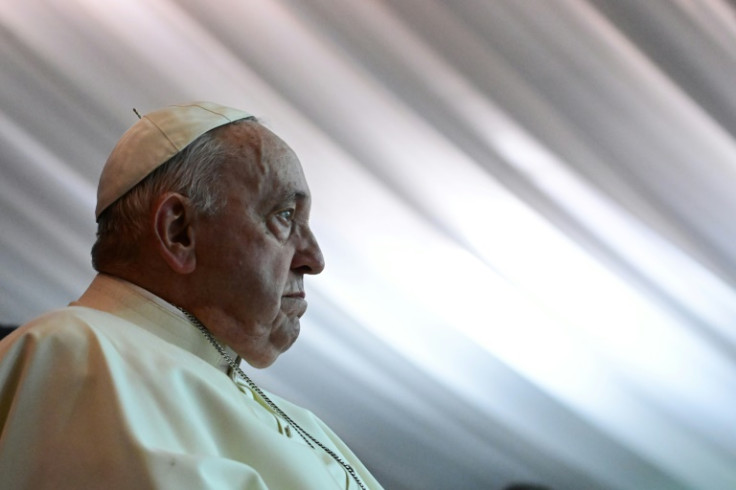Will Pope Francis Become A Saint? The Miracle That Could Lead The Path To Sainthood
Pope Francis's path to sainthood hinges on verified miracles and his impactful contributions to the Church.

Pope Francis is one of the most beloved figures in modern Catholicism—but could he one day be declared a saint? With growing admiration for his legacy and whispers of a potential miracle linked to his name, speculation is mounting over whether the Church may soon begin the formal path to canonisation.
Yet the road to sainthood is long, and the Vatican demands far more than popularity—it requires proof of the divine. Here are some reasons why he could some day be declared as one of the divine:
The Chances of Sainthood for Pope Francis
Pope Francis's death this month at age 88 has prompted calls from many of his followers for him to be fast-tracked for sainthood. Historically, the Church takes considerable time before officially recognising someone as a saint. For instance, Pope John Paul II, who died in 2005, was canonised nine years later in 2014, after a lengthy process that included multiple miracles.
Francis's reputation among ordinary Catholics remains high. His down-to-earth approach, compassion towards marginalised groups, and openness to issues like LGBTQ rights have endeared him to many. Some experts suggest this could influence the Church to speed up his possible canonisation. Hofstra University's Phyllis Zagano noted that in recent times, the Church has become more receptive to spontaneous public acclaim, which might accelerate Francis's path to sainthood.
However, others like Rev. Patrick S.L. Flanagan caution patience. 'People are still in shock,' he said, reflecting the rawness of the loss. Despite this, Flanagan believes that Francis's life and actions, especially his focus on humility and outreach, could withstand potential scandals, which sometimes slow down sainthood processes.
The Miracles That Could Make It Happen
A key element in declaring someone a saint is the attribution of miracles. One such miracle that captured attention involved a young boy at the Vatican. Paolo Bonavita, a 10-year-old with autism and epilepsy, unexpectedly walked onto the stage to meet Pope Francis at the Paul VI Audience Hall last month. His mother, Elsa Morra, described it as a moment of awe, especially given her son's health struggles.
Bonavita's health had taken a worrying turn, with doctors suspecting a tumour or multiple sclerosis. Yet, after the encounter, his condition improved dramatically. Tests later showed no signs of cancer or neurological issues. His mother believes this was a miracle, saying that if given the chance she would tell the pope, "Thank you for the miracle," and crediting the pope's prayer.
Such stories often serve as compelling evidence when the Church investigates miracles associated with a candidate for canonisation.
How do you Become a Saint?
Becoming a saint involves several stages, starting with the individual's death. Usually, a waiting period of five years is standard, in order to allow raised emotions to settle. Once this period passes, the bishop of the deceased's diocese can open an investigation.
This early phase involves gathering evidence of the person's virtues and deeds. If deemed worthy, the candidate is given the title 'servant of God'. The next step is demonstrating that the individual lived a life of 'heroic virtue'—a requirement that then leads to the title 'venerable'.
The process then will move onto looking at verified miracles. Usually, two are needed: one for beatification and another for canonisation. A miracle is defined as a supernatural event that cannot be explained scientifically and is attributed to prayers directed towards the candidate. For martyrs, who have died for their faith, only one miracle is required for beatification.
Lastly, canonisation involves a formal ceremony where the Pope declares the individual a saint, often after a second verified miracle. This process can take years or even centuries, as history shows with figures like St. Bede, who waited over a millennium.
What's Next for Pope Francis?
While the process is lengthy, the emotion among his supporters suggests they may push for a quicker consideration. If proven miracles are attributed to him, such as Bonavita's remarkable recovery, the Vatican might move more quickly.
In the end, whether Pope Francis becomes a saint depends less on popular enthusiasm and more on verified evidence and the Church's deliberation. However, his stories of healing and his life's example continue to fuel his followers' hopes that the path to sainthood may not be as distant as it may seem.
© Copyright IBTimes 2025. All rights reserved.





















